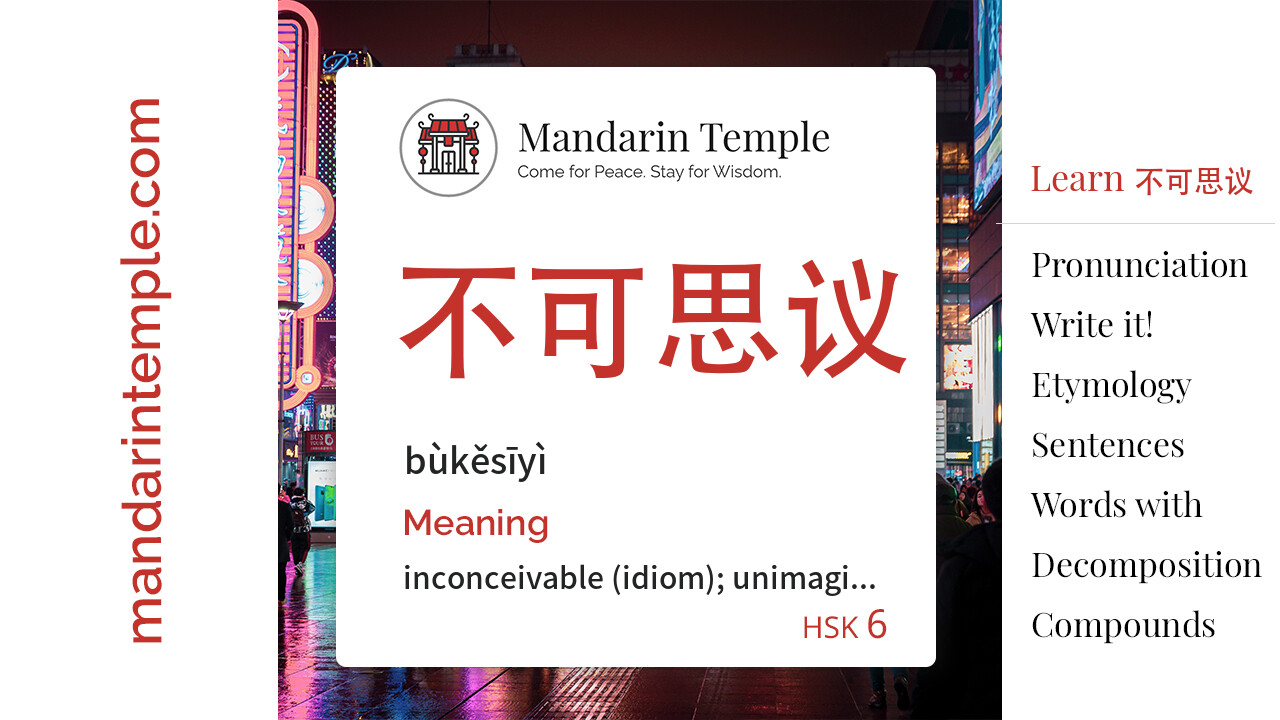Write it!
Practice your Chinese writing skills and learn precisely where and when to draw every stroke of the
Chinese word 不可思议 bùkěsīyì .
Press the Show Strokes button to see the strokes and their order and hit Start Drawing when you are
ready to practice.
Example sentences using 不可思议 bùkěsīyì
Broaden your vocabulary by interacting with 5 audio-assisted sentences using the Chinese word 不可思议 bùkěsīyì in different contexts.
然而 ránér ,岔 chà 断 duàn 他 tā 的 de 思潮 sī cháo 的 de 可不是 kě bu shì 他 tā 祈求 qí qiú 的 de 那 Nā 个 gè “回音 huí yīn ”, 而是 ér shì 那股不可思议 bùkěsīyì 的 de 反对 fǎnduì 势力 shìli .
Instead of the answer he demanded, that inexplicable counterinfluence cut across the current of his thought.
他 tā 怎么 zěnme 能 Néng 爬 pá 得 dé 那么 nà me 远 yuǎn ,真 zhēn 不可思议 bùkěsīyì .
It's marvellous how he's managed to climb that far.
他 tā 开心 kāixīn 地笑了 le :“真是 zhēn shi 不可思议 bùkěsīyì ,我们 wǒmen 现在 xiànzài 已经 yǐjīng 两次成功 Chénggōng 打进 dǎ jìn 决赛 juésài 了。”
He beamed: "Unbelievably, we have now made it to the final twice."
AMAZON BOOKSHELF
AMAZON BOOKSHELF
